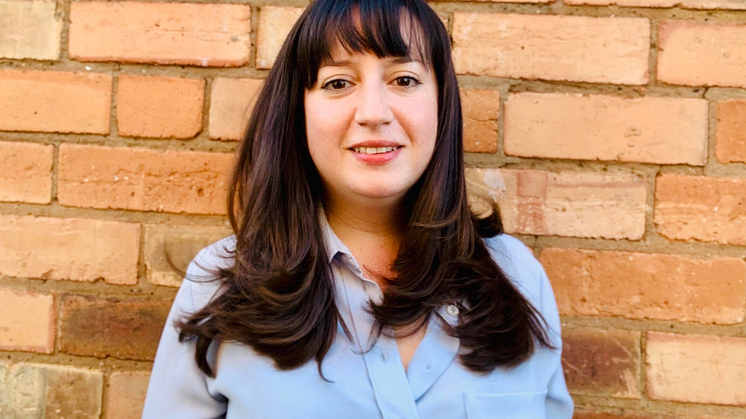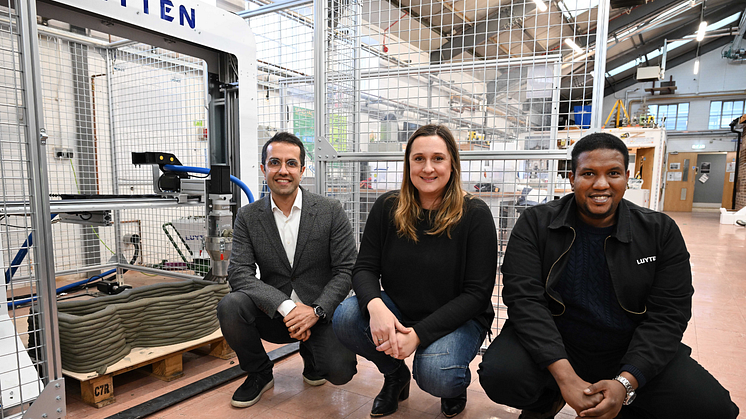
Press release -
UK - Saudi research explores how AI can drive sustainability.
Academics from Northumbria University and King Fahd University of Petroleum and Minerals (KFUPM) in Saudi Arabia are investigating how Artificial Intelligence (AI) can make the construction industry greener.
Dr Pablo Martinez Rodriguez, from Northumbria’s Department of Architecture and Built Environment and co-investigator Dr. Osama Mohsen from KFUPM have received funding from the British Council’s UK Saudi Challenge Fund to undertake a year-long research project. They have been selected because of their expertise and history of research in this field. In particular, their work will look at reducing waste from construction sites in the UK and Saudi Arabia as part of a major drive toward greater sustainability.
The UK construction industry uses up to 40 percent of the UK’s raw resources every year, 20% of which ends up in landfills. Current UK efforts have managed to divert about 13 percent of it from landfills, looking for alternative ways of disposal or finding novel uses to certain materials, however that is far from the 99 percent goal set up for the near future. Waste reduction in the construction industry is key for any country aiming to achieve the UN sustainability goals marked for 2030.
Saudi Arabia faces similar challenges. But as a rapidly developing economy, it faces additional difficulties in ensuring growth is managed sustainably. According to Saudi Arabia's National Centre for Waste Management, the environmental degradation caused by solid waste in 2021 had an estimated cost of $1.3 billion. Annual waste generated by the construction industry in Saudi Arabia amounts to approximately 130 million tonnes, of which less than 1 percent is recycled. The rest mostly ends up in landfills – and demand for landfill space is increasing rapidly.
Dr. Martinez Rodriguez and Dr. Mohsen will aim to develop AI models that can identify and quantify waste from a range of building materials, such as wood or plastics, that may end up in landfill sites but that could be recycled. The joint research will also help create a comparative analysis between waste management and sustainability practices in the UK and Saudi Arabia.
Dr. Martinez Rodriguez said: “Most construction sites analyse waste through modelling techniques, rather than measuring what is actually being thrown away. We need a flexible way of processing the data more quickly than we currently have, and by using AI we can install visual sensor systems that monitor skips at construction sites and derive accurately how much waste is actually being produced.
“This would give a value to the waste that is being generated at construction sites and help us better understand the capabilities of circular economy so that the building industry can become more sustainable.”
While the UK is considered to be slightly more advanced than Saudi Arabia in terms of sustainability, there is currently still no accurate waste measurement system in either country. “Our research will therefore have an impact in both the UK and Saudi Arabia and help inform policy and develop best-practice guidelines for the industry,” added Dr. Martinez Rodriguez.
Part of the British Council’s Going Global Partnerships programme, the UK-Saudi Challenge Fund offers grants for UK and Saudi institutions to support research collaboration, internationalisation, and transnational education.
Northumbria already has a successful track record of sustainability research collaboration with partners in Saudi Arabia. This includes work by Northumbria’s Dr Muhammad Wakil Shahzad to develop a sustainable solution for clean drinking water that can be deployed to rural communities and set up easily without scientific know-how. In 2021 Dr Shahzad was awarded a prestigious Energy Globe Award (Saudi Arabia) for the project.
For more information on research at Northumbria please visit www.northumbria.ac.uk/research
Topics
UNIVERSITY OF THE YEAR 2022 (Times Higher Education Awards)
Northumbria is a research-intensive university that unlocks potential for all, changing lives regionally, nationally and internationally.
Two thirds of Northumbria's undergraduate students come from the North East region and go into employment in the region when they graduate, demonstrating Northumbria's significant contribution to social mobility and levelling up in the North East of England.
Find out more about us at www.northumbria.ac.uk
--- Please contact media.communications@northumbria.ac.uk with any media enquiries or interview requests ---









